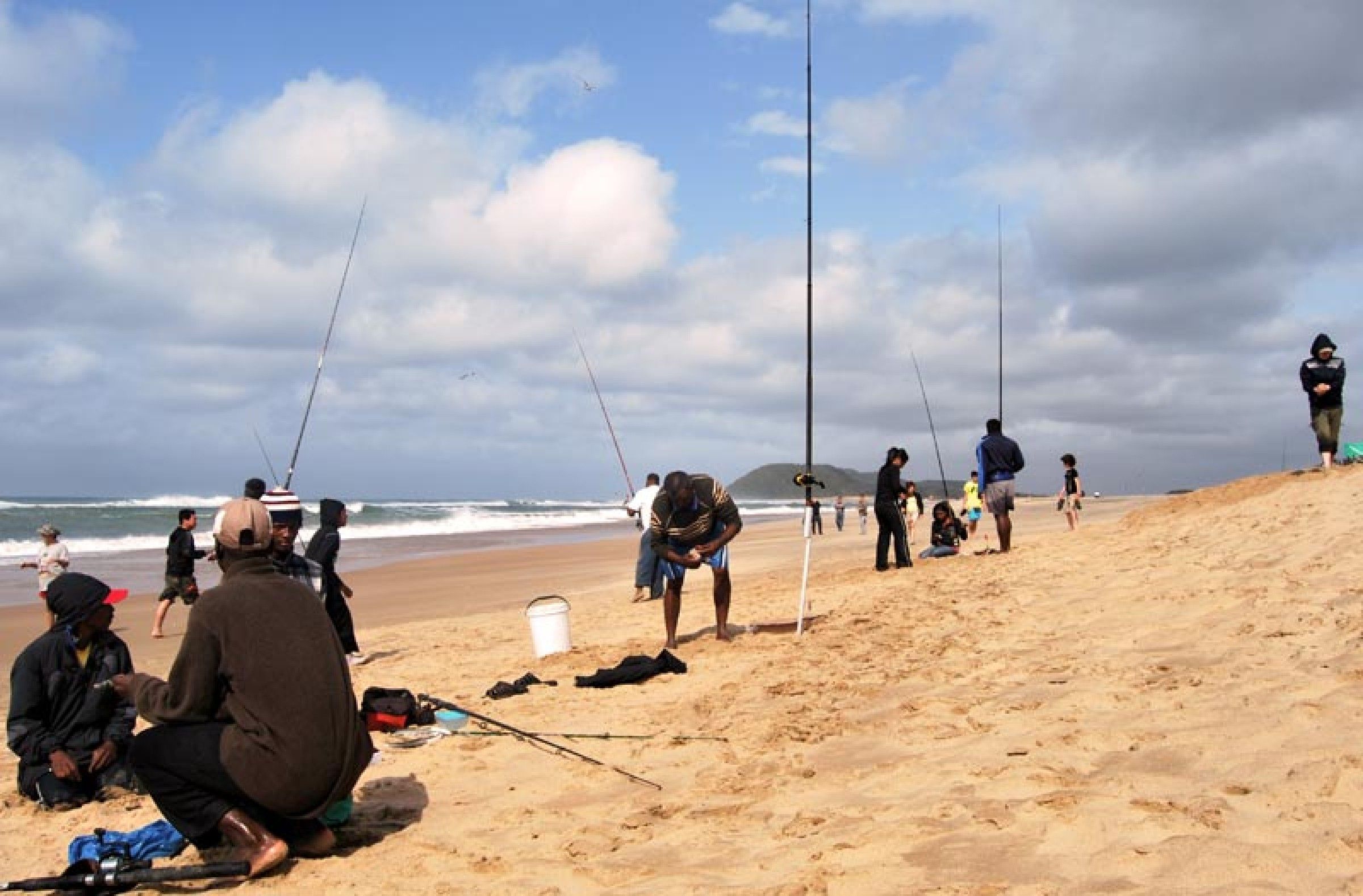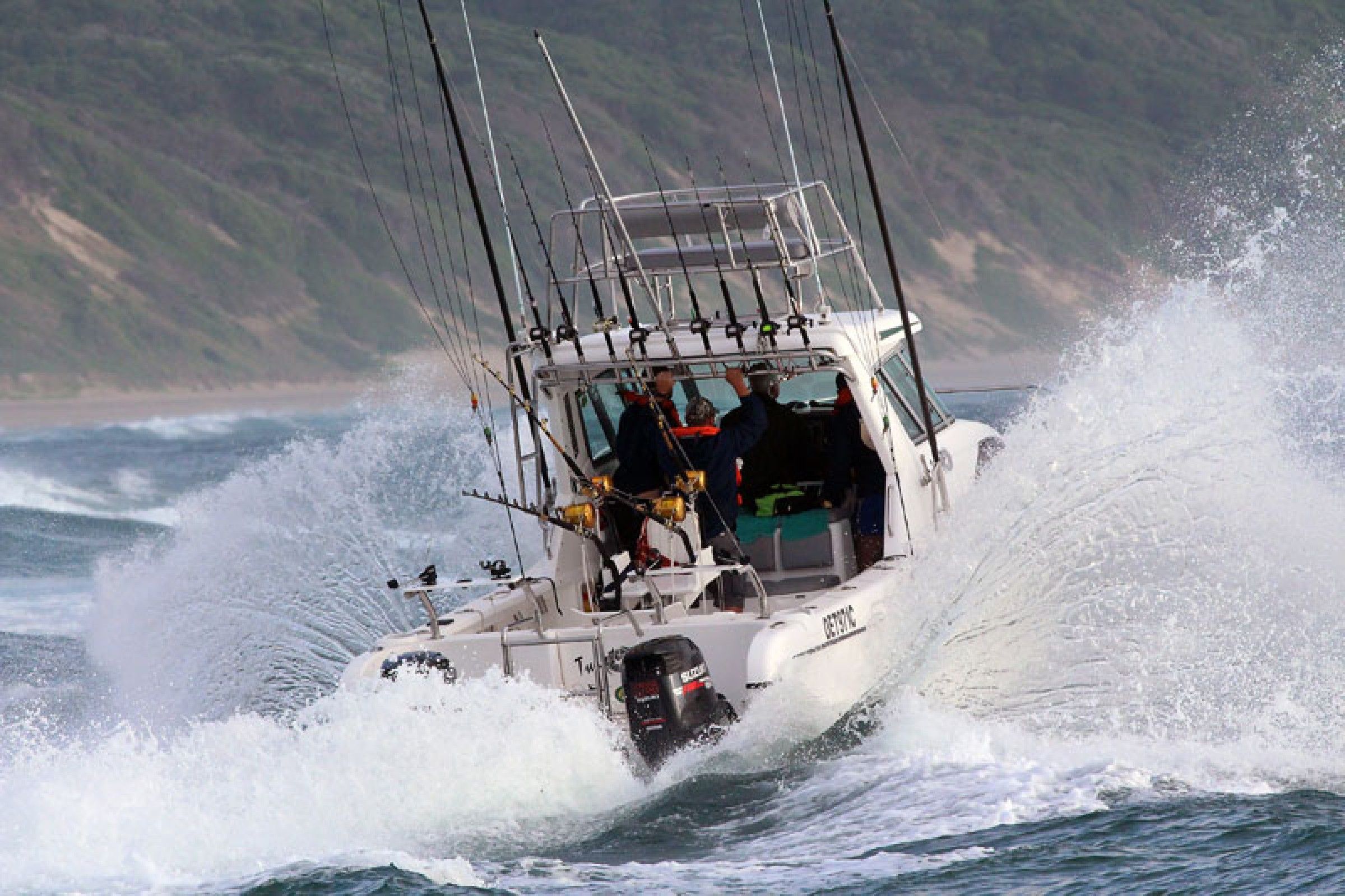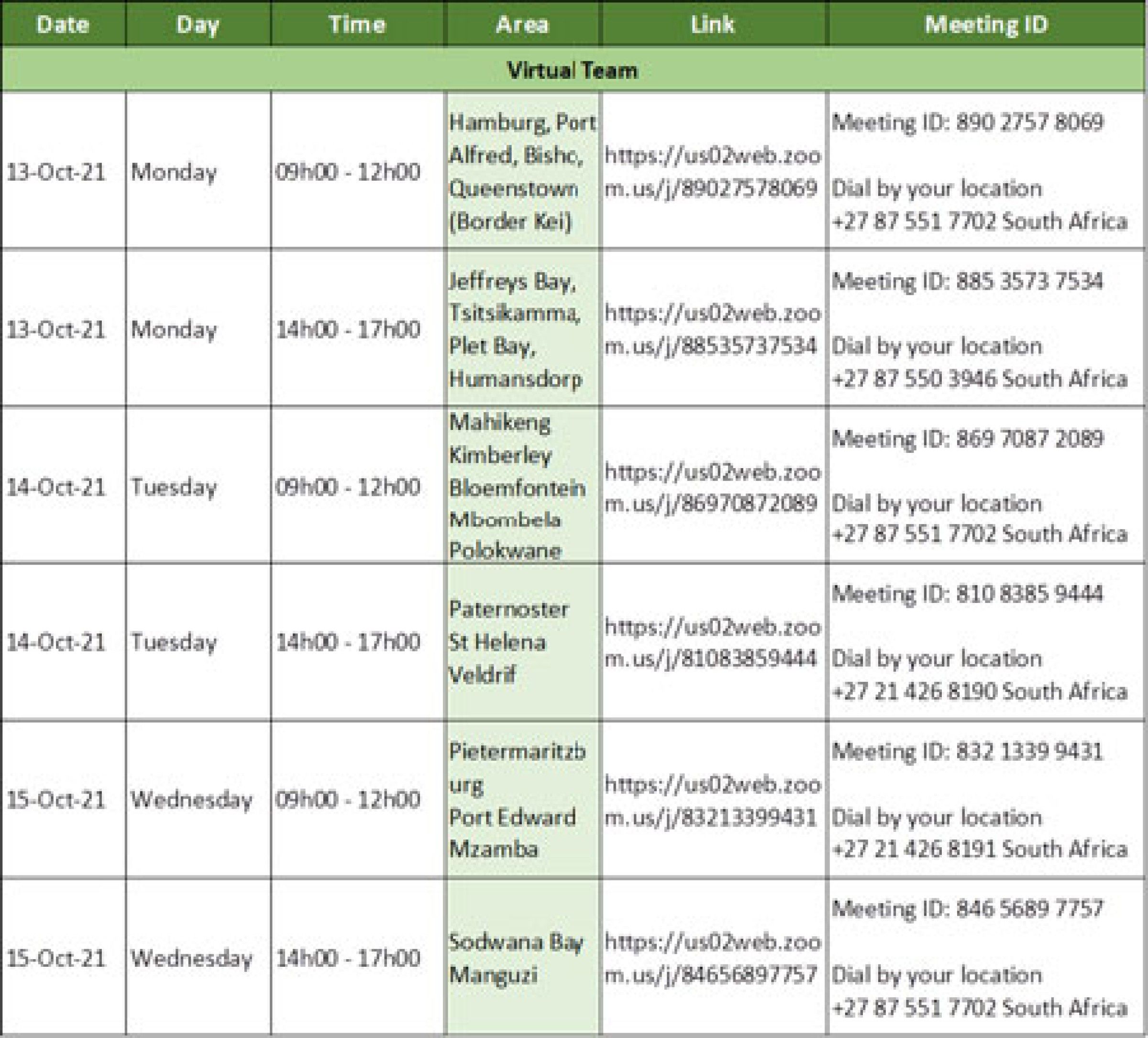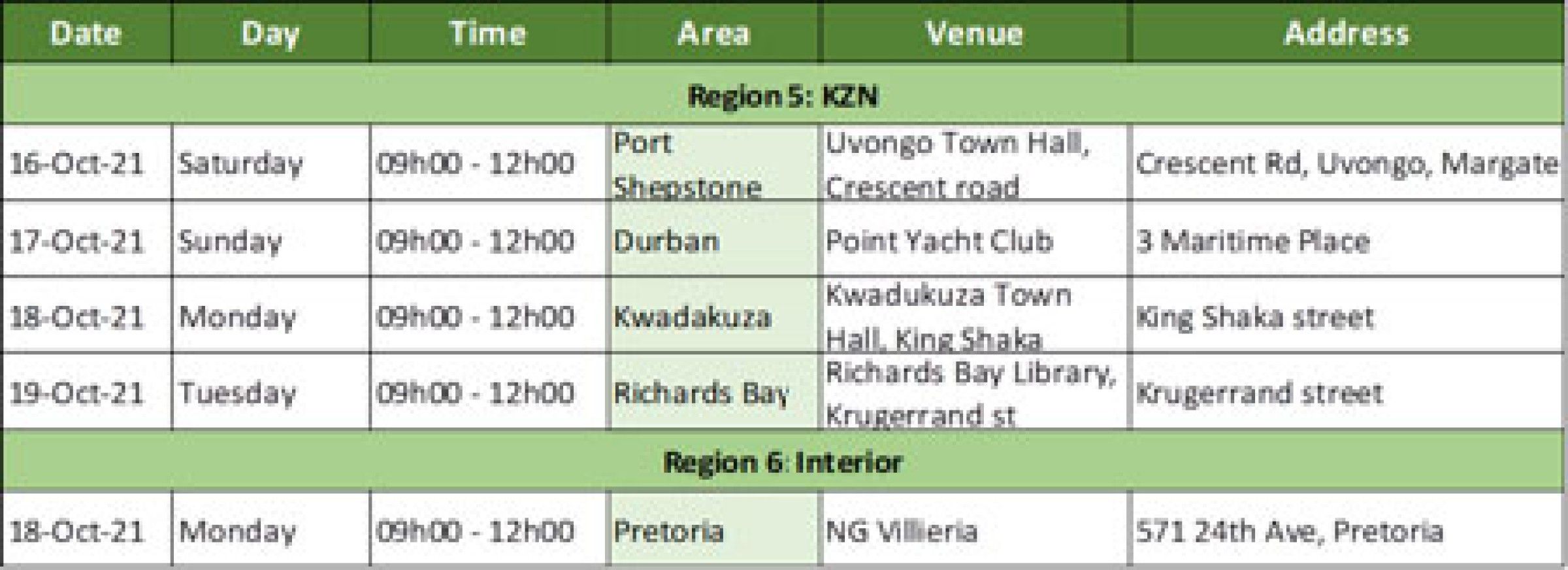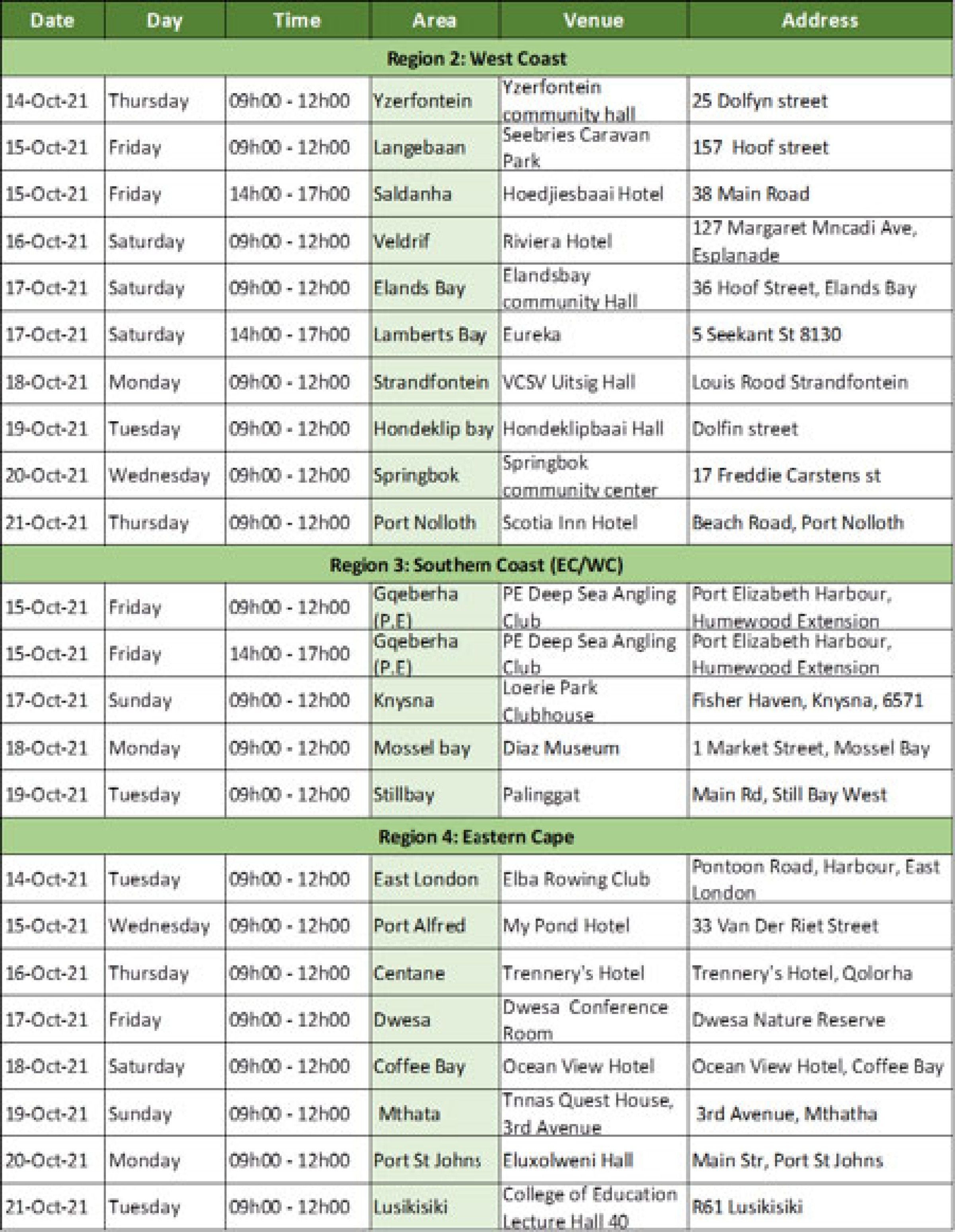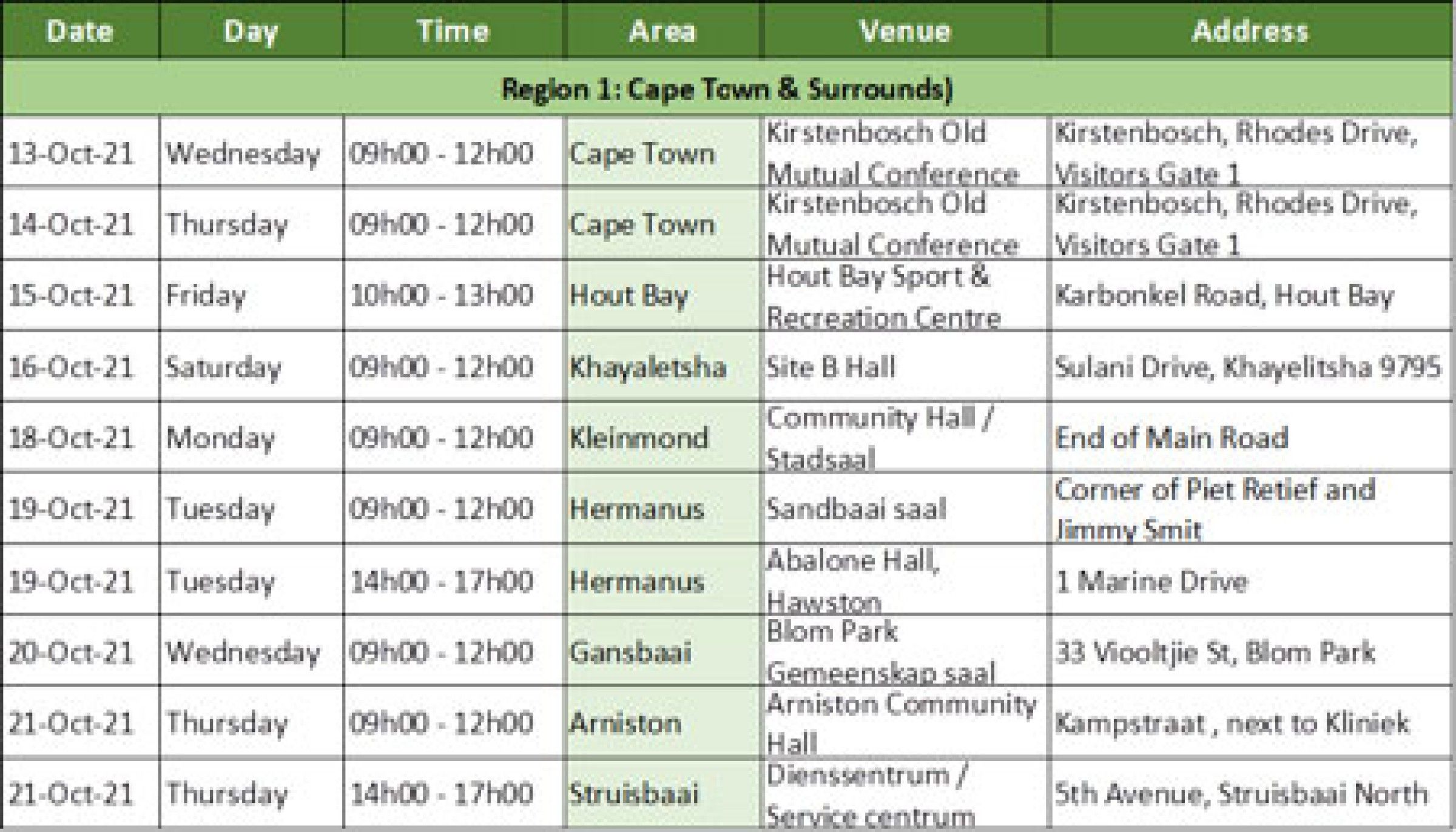
General policy to guide the allocation and granting of commercial fishing rights
18 August 2021
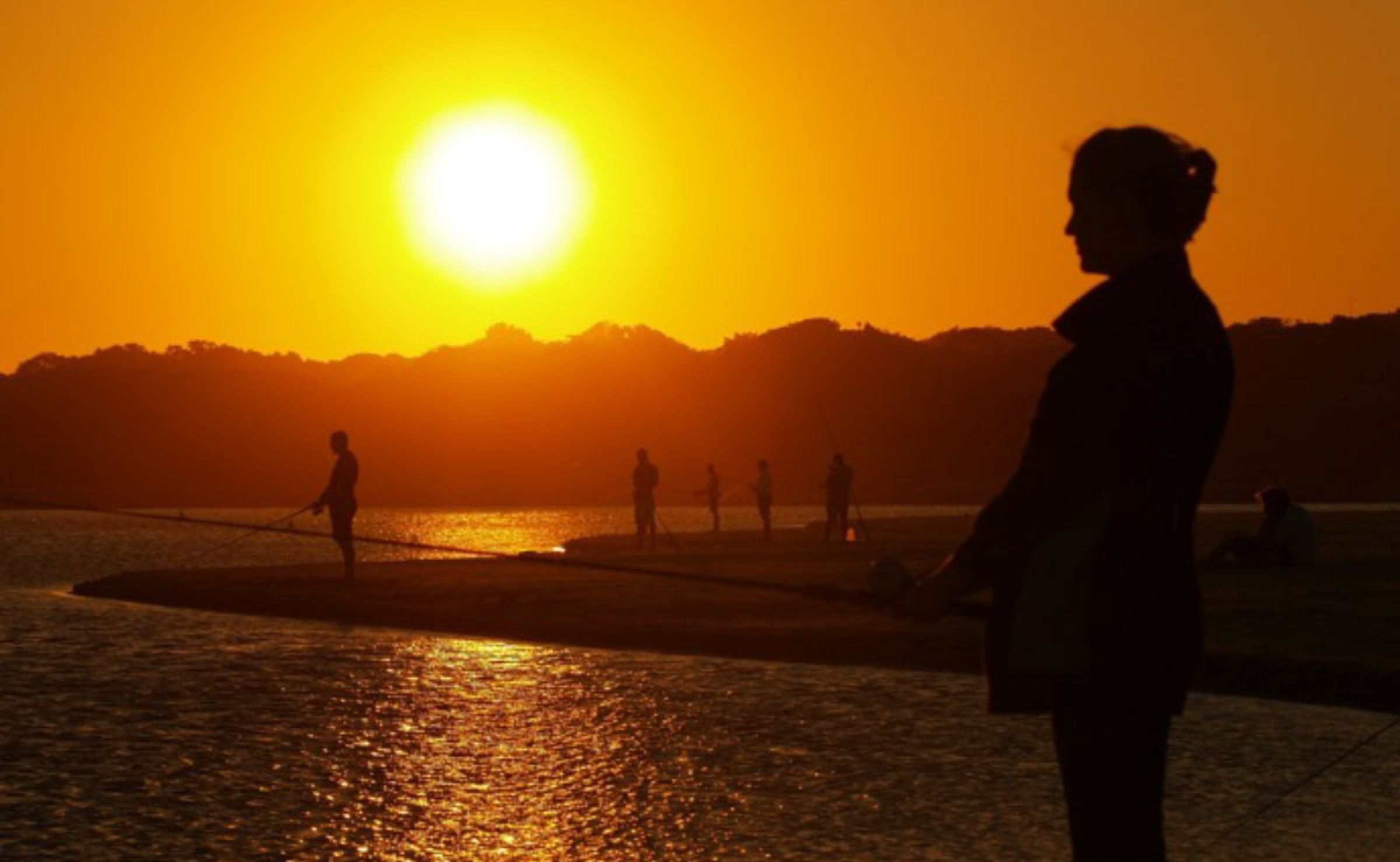
One of the most popular recreational activities within the iSimangaliso Wetland Park is fishing, and here we find three main types: estuarine, shore-based and boat-based fishing.
Estuarine fishing Estuarine fishing takes place in the Kosi Bay and Lake St Lucia systems. Kosi Bay allows for boat-based fishing only, and is restricted to Lake Nhlange.
Shore fishing Shore fishing is carried out along most of the shores, except for the sanctuary areas: Leven Point (North of Cape Vidal), and Red Sands (south of Sodwana Bay) and south of Kosi mouth. Boat-based fishing iSimangaliso has four official launch sites; Maphelane, St Lucia, Cape Vidal and Sodwana Bay.
Legislation Various legislations exist around fishing, including the Marine Living Resources Act 18 of 1998 & Regulations, and the World Heritage Convention Act & Regulations. Members of the public have been invited to comment on draft policies related to the commercial fishing rights allocation process.
On the 13th and 20th September 2021, the Minister of Forestry, Fisheries and the Environment, Ms Barbara Creecy, published:
the Draft General Policy on the Allocation of Commercial Fishing Rights for the 2021/2022 Fishing Rights Allocation Process (General Policy); Proposed Fees payable in respect of Application for Commercial Fishing Rights and Grant of Rights; Draft Policy on the Transfer of Commercial Fishing Rights; and the Draft Sector Specific Policies for the Fishing Rights Allocation Process of 2021/22 for public comments. The comment period has been extended and will close on 25 October 2021. The documents published for comments can be accessed by following the below link on the Department of Forestry, Fisheries and the Environment’s (DFFE) website here and here.
The aim of the draft General Policy is to guide the allocation and granting of commercial fishing rights prescribed by Section 18 of the Marine Living Resources Act.
In terms of the Marine Living Resources Act, the Minister or a DFFE official to which the powers are delegated, have the powers to allocate and grant commercial fishing rights.
The draft General Policy applies to the allocation of commercial fishing rights in the following commercial fishing sectors: Abalone, Demersal Shark Longline, Hake Deep Sea Trawl, Hake Handline, Hake Inshore Trawl, Hake Longline, Horse Mackerel, KwaZulu-Natal Beach Seine, KwaZulu-Natal Prawn Trawl, Large Pelagic Longline, Netfishing (Gillnets and Beach Seine), Oysters, Patagonian Toothfish, Seaweed, Small Pelagics, South Coast Rock Lobster, Squid, Traditional Linefish, Tuna Pole-Line, West Coast Rock Lobster (Nearshore), West Coast Rock Lobster (Offshore), and White Mussels, unless the sector becomes managed under a fishing sector other than commercial fishing sector.
Should any of the fishing sectors be allocated or moved to the Small-Scale fishing sector, then those fishing sectors will be managed in terms of the Small-Scale Fishing Policy and associated Regulations new fisheries that may be established and commercialised.
The Socio-Economic Impact Assessment System (SEIAS) study The Socio-Economic Impact Assessment System (SEIAS) study completed for the draft policy is available for download from the Department’s website.
The document may also be requested by sending an email
To ensure the effectiveness of the policies to address the social and economic needs of the fishing industry, affected fishers and the ecological sustainability of the affected resources, once rights have been allocated, performance measure exercise will be undertaken at identified times during the period the right is allocated.
The Department will be embarking on a national public consultation process to ensure that all interested and affected fishing industry stakeholders are aware of the proposed policies and related application fees. The views of members of the fishing industry and interested parties will be sought to guide the Minister in determining the final policies and fees.
The public consultation process is scheduled to commence on Wednesday, 13 October at 09h00 and will end on Thursday, 21 October 2021 at 12h00. Sessions will be available nationwide in person and virtually. See below list of the various FRAP2021 public consultation centres. Comment Any person who wishes to comment on the draft FRAP 2021/22 policy may submit written comments to the Department by:
Post: Department of Forestry, Fisheries and the Environment Attention: Deputy Director: Administration (FRAP) Private Bag X2, VLAEBERG 8018
By hand: 4th Floor Foretrust Building, Martin Hammerschlag Way, Foreshore, Cape Town By email:
For all FRAP enquiries can also be directed to the FRAP Call Centre on 021 402 3727 (FRAP).
An independent toll free FRAP hotline has been established and available 24/7 for the purposes of reporting unethical behaviour, theft, fraud or related activities. The FRAP Fraud Hotline number is 0800 203 589.
For further media enquiries contact Albi Modise on 083 490 2871
Media enquiries should be directed to Bheki Manzini at
